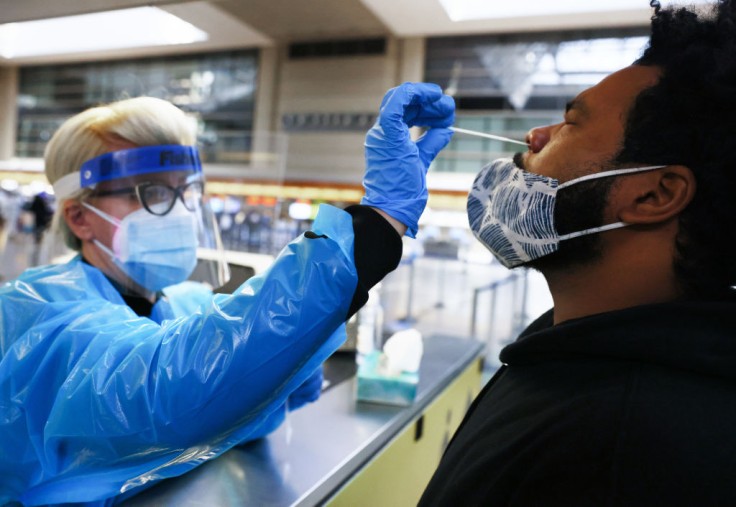
In the face of a seasonal surge in respiratory illnesses, the Centers for Disease Control and Prevention (CDC) has issued a stern warning about an imminent winter COVID-19 surge.
Despite the presence of other respiratory viruses in circulation, COVID remains the primary catalyst for hospitalizations and fatalities.
CDC Director Dr. Mandy Cohen, during a recent briefing for reporters, underscored the severity, citing approximately 15,000 hospitalizations and 1,000 deaths weekly attributed to the virus.
CDC Warning Talks About the Looming Winter COVID Surge
With the CDC no longer tracking national case numbers, the agency emphasizes the significance of wastewater sampling to gauge the activity of winter COVID surge.
The CDC's wastewater dashboard discloses a national rise in viral activity, with the Midwest experiencing a particularly alarming spike. Experts, including epidemiology professor Tara Smith from Kent State University, point to colder weather as a probable contributor to the surge.
The CDC's winter warning coincides with falling temperatures and the increased travel associated with the holiday season, fueling concerns of an escalation in COVID infections.
As of November 25, COVID variants are on the rise. The predominant strain in the United States remains HV.1, constituting about 32% of new cases, according to the CDC. Nevertheless, there are signs that other variants are gaining momentum.
The BA.2.86 variant, initially detected over the summer, saw a threefold increase in prevalence for the week ending November 25, reaching 9% of new cases.
Although the World Health Organization has reclassified it as a variant of interest, experts downplay immediate concerns about its severity. Nonetheless, the CDC stresses the necessity for vigilance as variant activity rises amid the winter COVID surge.
Low Vaccination Rate Raises Concerns
Amid variant concerns and the looming winter surge, the low rate of COVID-19 vaccinations becomes a substantial worry. Current data from the CDC indicates that only 16% of adults in the U.S. have received the updated COVID-19 vaccine.
Experts, including Ali Mokdad, Chief Strategy Officer for Population Health at the University of Washington, express concerns about the inadequate vaccination coverage.
While acknowledging that emerging variants, including Omicron, aren't immediate causes for alarm, they underscore the importance of widespread vaccination to mitigate the severe consequences of COVID.
Vaccine Efficacy Amid COVID Variant Threats
Addressing concerns about the efficacy of vaccines against new variants, epidemiology professor Tara Smith seeks to reassure the public.
While acknowledging the potential for new variants that may challenge existing immunity, Smith emphasizes that current vaccines, including the updated version targeting the XBB.1.5 Omicron subvariant, enhance the antibody response against circulating variants.
A recent study from researchers at Columbia University supports this claim, indicating improved antibody responses against HV.1 and JN.1. Despite the uncertainties, experts stress the critical role of vaccination in protecting against the most severe outcomes of COVID.
As the winter season approaches, the CDC's warning of a Winter COVID surge, coupled with the rise of variants and a low vaccination rate, signals a critical juncture in the ongoing battle against the pandemic. Vigilance, vaccination, and a collective effort are crucial in mitigating the impact of the Winter COVID surge and emerging variants.